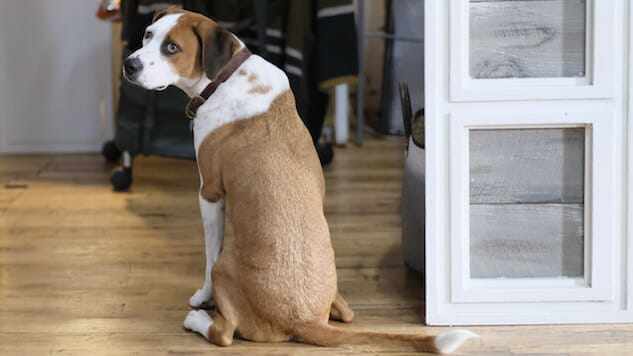The Radical Earnestness of Downward Dog
Photo: ABC
Martin has the voice of your college dorm’s friendliest stoner: Sonorous but not serious, his most grandiose pronouncements slowed by the fact that his mind and his tongue are moving at different speeds. He shows concern over your lack of “self care” and relishes the freedom of the ill-considered act; he is kind and caring, if at times a bit daft, no less lost than you are but still hopeful that understanding is around the next corner. That Martin (voiced by series co-creator Samm Hodges) is a dog might scare one away from the brief, beloved Downward Dog, canceled by ABC before the conclusion of its first season, though this is, in fact, its secret weapon, the phone booth Superman slips into to slough off Clark Kent. Martin’s presence, and the series’ sweet, silly premise, is delightful cover for its heroic undercarriage, squaring space for its foremost risk: At the heart of Downward Dog is its radical earnestness, the belief that to be and to feel fully is almost always to court embarrassment—and that the real shame is to relent to the pressure to hide one’s emotions, rather than staring them in the face.
-

-

-

-

-

-

-

-

-

-

-

-

-

-

-

-

-

-

-

-

-

-

-

-

-

-

-

-

-

-

-

-

-

-

-

-

-

-

-

-








































